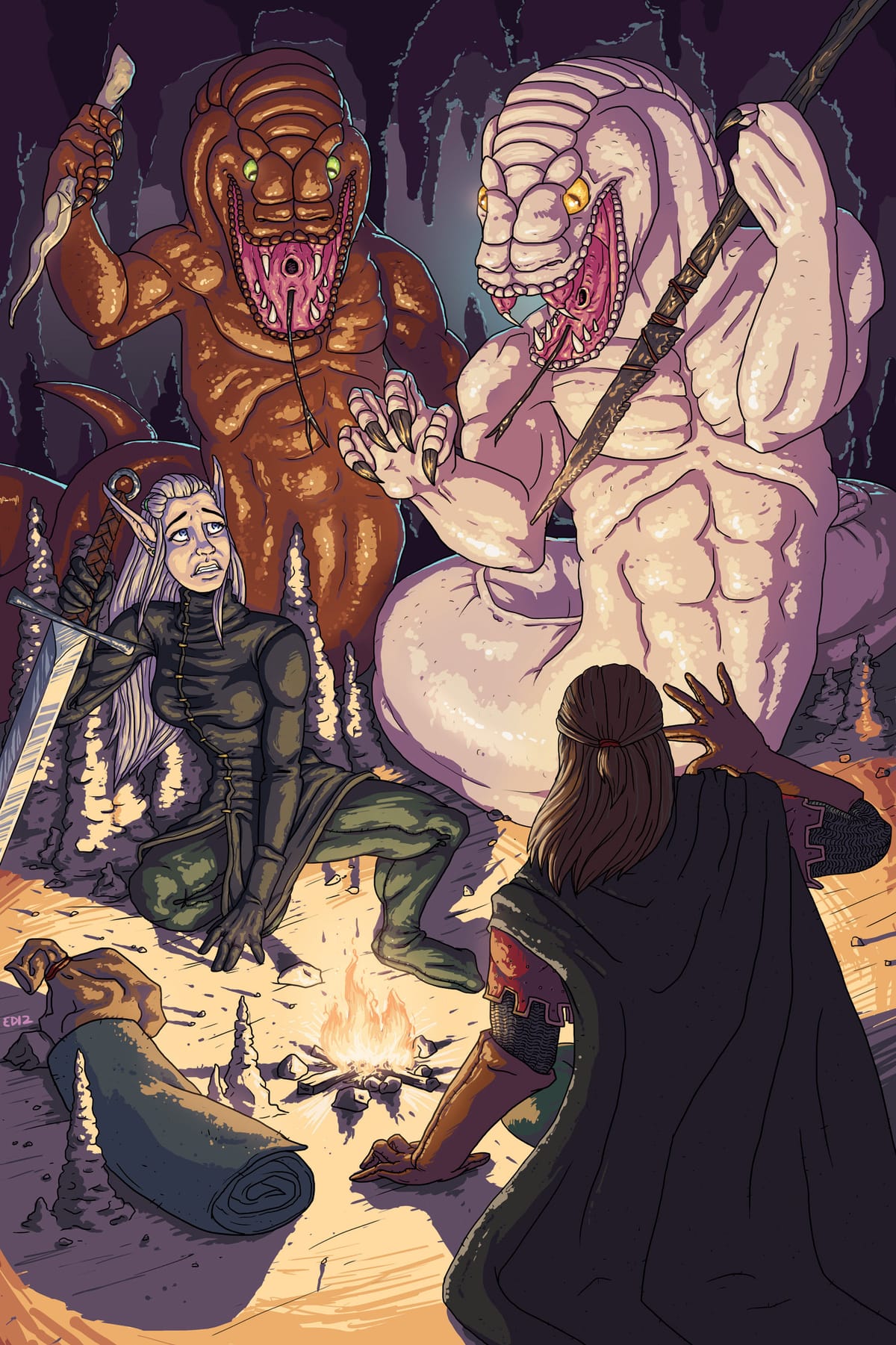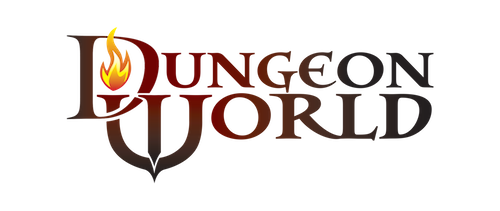Knowledge is Power Part 2: Examine

On Tuesday, Helena revealed Recall from Dungeon World 2, and how it differs from Spout Lore.
In my experience playing and GMing the original Dungeon World, Discern Realities has always been a slightly strange move (it's a great podcast, though).
When you closely study a situation or person, roll+WIS. On a 10+, ask the GM 3 questions from the list below. On a 7–9, ask 1. Either way, take +1 forward when acting on the answers.
- What happened here recently?
- What is about to happen?
- What should I be on the lookout for?
- What here is useful or valuable to me?
- Who’s really in control here?
- What here is not what it appears to be?
The book includes some good advice on how the move is more involved than a "Perception check", and how to improvise answers in-the-moment, but also doubles down on the list of questions.
Unless a move says otherwise players can only ask questions from the list. If a player asks a question not on the list the GM can tell them to try again or answer a question from the list that seems equivalent.
This adherence to the list of questions never quite clicked with me or many of the people I played with. When Discerning Realities, a player often already has a specific thing in mind they want to know about. They then typically translate that into one of the listed questions, while still trying to communicate their overall intent. On a success the GM often tries to answer their listed question in a way that also fulfills the intent behind it.
This moment of double-meaning between intent and question often slowed the game down and made new players scratch their heads. If someone wants to know where a thief is hiding in an area, is that "What should I be on the lookout for?" or "What here is not what it appears to be?" More importantly, will the GM's answer meaningfully change depending on which one I choose? If they answer the listed questions properly, but don't answer the real question behind that, the one the player really wants to know about, will that even feel like a success?
Discern Realities felt great on paper, but often felt messy in play. Even in the book's own example of adjudicating Discern Realities in play, when the player asks a question not from the list, the GM says "I'm going to pretend you asked 'What happened here recently'" and then proceeds to answer the player's original question.
Overall, we felt that Discern Realities' strict adherence to listed questions did more harm than good, which is why we've decided to unshackle DW2's equivalent move.
Examine
When you thoroughly inspect your surroundings, roll+Astute. *On a 10+, gain 2 Clarity. *On a 7-9, only 1. You can spend Clarity at any point during this scene, 1-to-1, to ask the GM a question about the environment you could reasonably know the answer to, given your inspection and knowledge/experience/training.
Some examples questions include:
- What can I use to X?
- What happened here recently?
- What is not what it appears to be?
- What should I be on the lookout for?
- Who or what is the biggest threat?
There are a few other changes in Examine that become obvious as you read the move. Because now you get to ask whatever question you can think of that fits the fiction, we reduced the number you can ask on a 10+ from three to two. Also, we wanted you to be able to bank a question for later in the scene if you want, which is why we switched from “ask questions now” to “ask questions anytime during this scene”. Additionally, we also removed the +1 forward bonus—we want answers to be their own rewards, and the bonus was frequently forgotten in play anyway.
Lastly, we baked explicit fictional positioning into the move. If you couldn't reasonably know an answer, or you aren't inspecting in the right way, you don't get to ask the question. When surveying a burnt down tavern, a wizard using alchemical tests and divination magic might ask very different questions compared to a rogue who uses their knowledge of the streets to find a cooperative witness.
Just like with Recall, we want Examine to highlight the adventurers—their histories, connections, and capabilities—and let that play an important role in the narrative.
But this is just about investigating surroundings! Check back on Tuesday to hear from Helena about investigating people.
Until next time
Spencer
